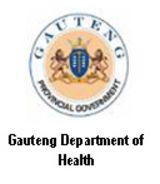Gauteng health dept says it’s recovering

 Suppliers who have not been paid are still refusing to fix equipment and to supply crucial commodities to health facilities in Gauteng. Since last year, Gauteng Health has had to pay accrued debt of over R3 billion, dating back to as early as 2005. In addition, the department still has to pay current accounts. Many suppliers have stopped providing services and others have gone bankrupt as a result of the department’s failure to pay them. But the head of the provincial health department, Dr Nomonde Xundu, has assured citizens that the department is on schedule with the payment of suppliers. Dr Xundu said only 1% of the accruals has not been paid.
Suppliers who have not been paid are still refusing to fix equipment and to supply crucial commodities to health facilities in Gauteng. Since last year, Gauteng Health has had to pay accrued debt of over R3 billion, dating back to as early as 2005. In addition, the department still has to pay current accounts. Many suppliers have stopped providing services and others have gone bankrupt as a result of the department’s failure to pay them. But the head of the provincial health department, Dr Nomonde Xundu, has assured citizens that the department is on schedule with the payment of suppliers. Dr Xundu said only 1% of the accruals has not been paid.
‘The 1% is those invoices that keep on popping up from our institutions when you thought that you were at the level of R3.6 billion with your accrued expenses of the previous years, dating back from 2005/2006 that you have managed to clear most of it. Ninety-nine percent is a huge achievement’, she said.
Provincial Health MEC, Hope Papo, said the outstanding invoices that keep on appearing out of the blue have a negative impact on the current budget as it makes it difficult to plan for current needs.
‘When you actually think that they have been paid, a facility will actually come with an invoice, a supplier will come with an invoice, which you then get surprised’¦ ‘Why was this supplier quiet?’ And that’s an issue we are actually taking very, very strongly going forward’¦ that we can’t have a situation where accruals keep on cropping up throughout the years, throughout the months because, then, it means that you’ll never actually be able to run a budget’, Papo said.
Gauteng DA Health spokesperson, Jack Bloom, finds it is difficult to believe the department’s claims that it is, indeed, on schedule with the payment of suppliers and contractors. He says if that were the case hospitals would not be cancelling crucial services such as operating on patients, which results in hospitals having long waiting lists.
‘Patients arrive for an operation and it’s cancelled. Very often it’s cancelled because the supplier hasn’t been paid, the machinery hasn’t been serviced or there is a problem with anaesthetists or the surgeon is not around. I think that these waiting lists get out of hand. We can’t go with a situation where there is 1 600 odd patients at Steve Biko waiting for operations, nearly 2 500 at George Mukhari. There are huge lists at the other academic hospitals. Sometimes, there are understandable reasons’¦ the patient didn’t arrive or ate food and, therefore, can’t go under anaesthetic. We understand that. But I think that’s a small part of the problem. In my experience they often don’t have clean linen. It affects an operation. You can’t go ahead with surgery unless everything is right because, otherwise, people’s lives are at stake. We’ve had operations cancelled because the air-conditioning wasn’t working. I think that all these factors need to be fixed up as soon as possible’, Bloom said.
Gauteng Health MEC Hope Papo warned that the problem of non-payment of suppliers and other contractors will not disappear easily. He lamented that the budget afforded the health department is insufficient to handle all its needs. About R250 million of the R350 million that the department gets from the provincial treasury every month for goods and services goes to the provincial medicines supply depot.
‘There’s always a shortfall. For example, our commitments will be R650 million per month, including the R250 million for the medical supply depot. But, then, if you are given R350 million by provincial treasury for goods and services, it means you have a shortfall of R300 million. That is the issue we are attending to with provincial treasury, national treasury (and the) national Department of Health because it then manifests itself in non-payment of some of the accounts. Then you’ll have the problem of people asking you: ‘You haven’t paid that one’¦’ because you have to take this one, pay a little bit there. So, it’s basically like peppering over a wound’, Papo said.
He said the high costs ‘ R250 million per month – incurred through the medicines depot have been under forensic investigation and the department is awaiting a report on this.
‘That report will actually tell us whether there is wastage in that depot or not; and the actions we need to take. The costs were just abnormal in that depo. We hope by the end of this month we would have had recommendations and an action plan in relation to that investigation’, he said.
Meanwhile, the department reports that the supply of essential drugs has improved from a low 40% in November last year, when clinics and hospitals sent patients away with rationed or no medicines at all, to 74% in August. Head of department, Dr Nomonde Xundu, said although there has been an increase in the availability of essential drugs, the amount is not nearly sufficient.
‘Ideally, we should have 90% – 95% of EDL drugs available at the depos ‘ not only the central depo, the regional depots as well because that’s where most of the primary health care happens. We’re working with suppliers, we’re replenishing the stocks’, said Dr Xundu.
Author
Republish this article
This work is licensed under a Creative Commons Attribution-NoDerivatives 4.0 International License.
Unless otherwise noted, you can republish our articles for free under a Creative Commons license. Here’s what you need to know:
You have to credit Health-e News. In the byline, we prefer “Author Name, Publication.” At the top of the text of your story, include a line that reads: “This story was originally published by Health-e News.” You must link the word “Health-e News” to the original URL of the story.
You must include all of the links from our story, including our newsletter sign up link.
If you use canonical metadata, please use the Health-e News URL. For more information about canonical metadata, click here.
You can’t edit our material, except to reflect relative changes in time, location and editorial style. (For example, “yesterday” can be changed to “last week”)
You have no rights to sell, license, syndicate, or otherwise represent yourself as the authorized owner of our material to any third parties. This means that you cannot actively publish or submit our work for syndication to third party platforms or apps like Apple News or Google News. Health-e News understands that publishers cannot fully control when certain third parties automatically summarise or crawl content from publishers’ own sites.
You can’t republish our material wholesale, or automatically; you need to select stories to be republished individually.
If you share republished stories on social media, we’d appreciate being tagged in your posts. You can find us on Twitter @HealthENews, Instagram @healthenews, and Facebook Health-e News Service.
You can grab HTML code for our stories easily. Click on the Creative Commons logo on our stories. You’ll find it with the other share buttons.
If you have any other questions, contact info@health-e.org.za.
Gauteng health dept says it’s recovering
by ayandamkhwanazi, Health-e News
October 26, 2012
MOST READ
No water no vote: Hammanskraal still doesn’t have clean drinking water a year after cholera outbreak
Cough syrup recall: What is diethylene glycol and what happens when you drink it?
Hunger and mental health: study looks at how families cope with food insecurity
Patients wait months for surgery at Leratong hospital as non-payment shuts down theatres
EDITOR'S PICKS
Related

Millions go hungry, accountability and public participation needed


